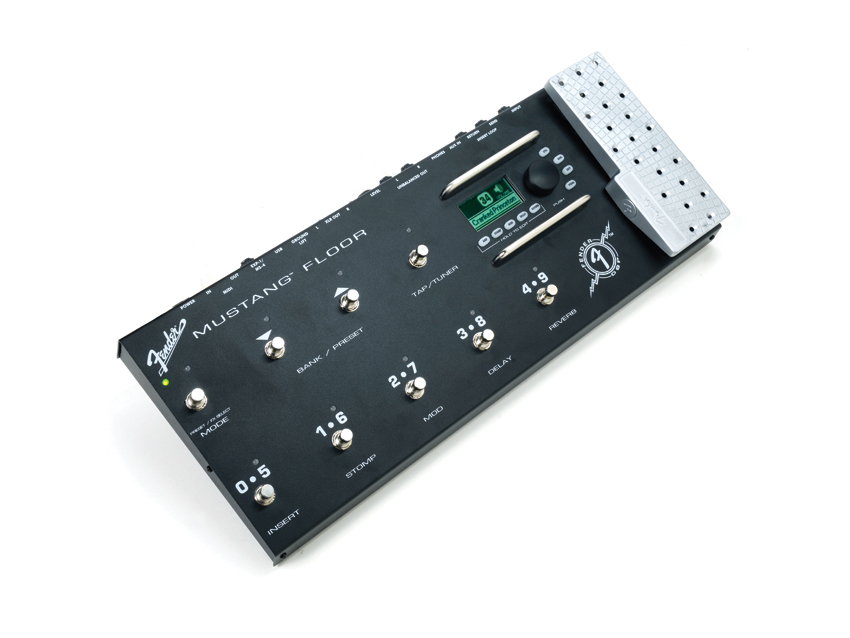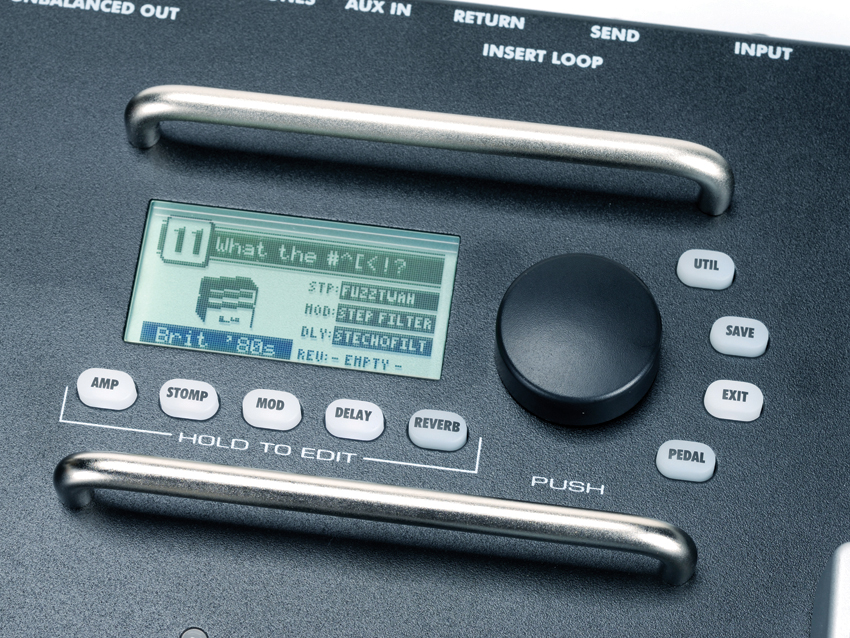MusicRadar Verdict
A worthy contender, but in this instance the mighty 'F' isn't yet at the top of the heap.
Pros
- +
Full-featured; excellent build; great modelling.
Cons
- -
Doesn't quite match the pedalboard vibe and functionality of its rival the Zoom G5.
MusicRadar's got your back

Fender Mustang Floor

Fender Mustang Floor
Like King Midas, every market sector that Fender touches turns to gold.
The US heavyweight's guitars and valve amps are beyond reproach, but the recent range of Mustang modeller amps has also been well received, and this on-the-deck equivalent promises "pro-level amp modelling and effects… you do not need to be a tech expert!"
"The '65 Twin Reverb setting is so responsive to dynamics that it'll have you tin-opening the unit in search of valves."
Fender stresses this £298 unit is not merely an overgrown stomper, but rather a tone-shaping powerhouse that delivers in all possible scenarios. For live, you've got the chunky chassis, nine footswitches, useful expression pedal and Line Out to run direct to the PA.
For studio-heads, it's an über-preamp, with a solid selection of 12 amp models (from Fender's own '59 Bassman to a modern Mesa/Boogie), 37 effects and 100 preset patches (ready-to-go tones built up from the aforementioned amp and effects models): all infinitely tweakable via dash buttons and backlit screen, or with free Fuse software if you want to go deeper.
The third scenario, friendless practice, is unlocked by headphone and MP3 sockets. On paper, all the bases are covered.
There's a tendency to number-crunch when it comes to multi-fx units, but while the Mustang is trailing the Zoom G5 in quantity, we're more concerned with quality. Fender doesn't yet have, say, Line 6's reputation for nail-on-head simulation, and the Mustang doesn't quite change our opinion, but there's enough faux-valve brilliance to make this a killer straight-to-the-desk studio weapon.
Want all the hottest music and gear news, reviews, deals, features and more, direct to your inbox? Sign up here.
Fender isn't specifying brands, but it's pretty clear we've got the glassy sparkle of a classic Vox and the full-bore, frayed-edge warmth of an old-school Marshall. Fender's own models are the pick of the bunch, meanwhile, with the '65 Twin Reverb setting so responsive to dynamics that it'll have you tin-opening the unit in search of valves. This is modelling done really well.
The Mustang is certainly intuitive when it's sat on your desk, with the chunky data wheel cycling through the endless presets and push/pulling to fine-tune parameters on the virtual amps and stompboxes.
But to our minds, this unit isn't quite there when it comes to instinctive, real-time tweaking on a darkened stage, with the single LCD screen sometimes leaving us a little confused as to where we're at, and on-the-hoof adjustments requiring several button-presses that you may not have time for when you're standing in front of a chanting crowd.